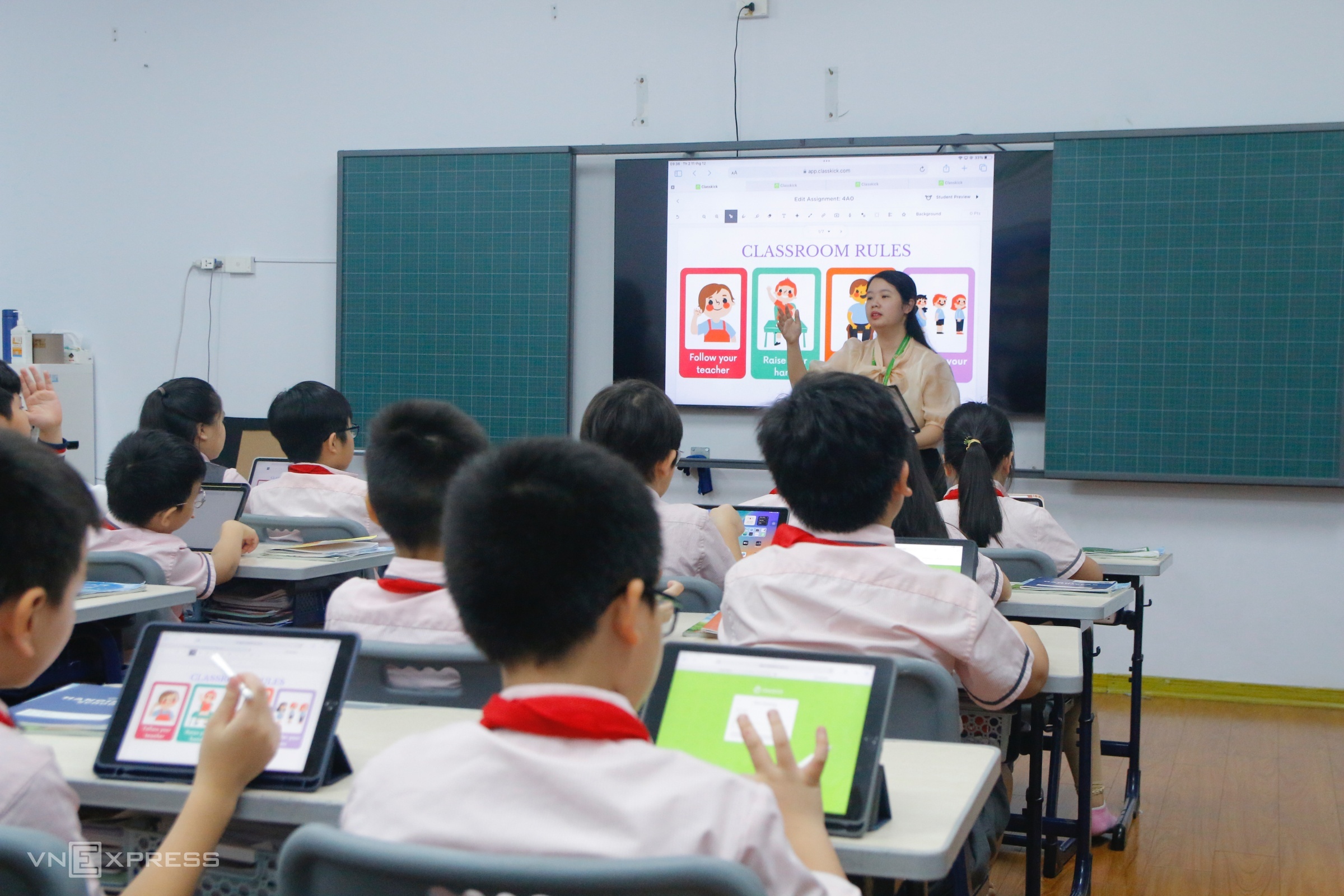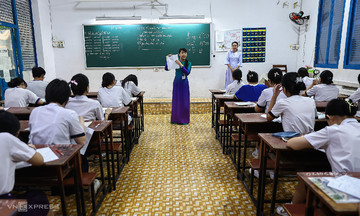This policy is part of Decree 222, issued by the Government on 8/8 and effective from 25/9. Schools are encouraged to apply information technology, artificial intelligence, and digital transformation in teaching and learning these subjects.
Tuition fees will be calculated based on the principle of cost recovery, with the consent of students, and in accordance with provincial People's Council regulations.
Similar to universities, foreign language instruction can be applied to part or all of the curriculum. Textbooks and materials are subject to approval by the principal. Schools will proactively determine tuition fees based on autonomy, student affordability, and relevant laws, regulations, and decrees.
Last August, the Politburo requested all levels to improve the foreign language proficiency of students, gradually making English a second language in schools.
The Ministry of Education and Training aims to have all eligible preschools implement English as a second language by 2035, benefiting 100% of children aged 3-5. At the primary and secondary levels, all schools will offer this program at levels 1, 2, and 3. Universities will similarly implement levels 4, 5, and 6.
Currently, some localities like Hanoi and TP HCM are piloting English-language instruction in public schools for certain subjects, often math and science.
At the university level, the National Economics University was the first to introduce a plan to develop English as a second language. By 2028, all programs will have at least 30% of subjects taught in English. Several other universities are planning similar initiatives.
 |
An English-language science lesson for elementary students in Hanoi, 12/2023. Photo: Thanh Hang |
An English-language science lesson for elementary students in Hanoi, 12/2023. Photo: Thanh Hang
According to the Decree, foreign language teachers at the primary and secondary levels must achieve at least level 4 (B2 in English) according to the 6-level foreign language proficiency framework for Vietnam, or equivalent. High school, vocational, and university teachers have a higher requirement of at least level 5 or 6 (C1).
Currently, the proficiency requirements for foreign language teachers are not specifically defined. The 2021 circulars of the Ministry of Education and Training on job titles and professions only stipulate that teachers "have the ability" to use foreign languages in professional activities and as required by the job position.
In reality, most foreign language or foreign language teacher training schools currently require a level 4 or 5/6 proficiency for graduation.
Thanh Hang












